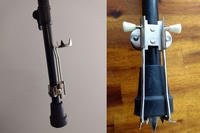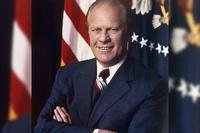"So when do I start?" A question like that is about as aggressive as you can get at the close of the interview. It may knock the interviewer for a loop and appear to be overly aggressive, but some people think of it as closing the sale. For some people, it has worked. For others, this approach may not feel comfortable or have the same effect. Your comfort level with the close -- whether you are aggressive, passive and polite or somewhere in-between -- will depend on your personality, the interview situation and the job for which you are applying.
Different Strokes for Different Folks
Mr. Feeney, the manager of a product development department, held second interviews with two qualified candidates. He was preparing to decide which candidate to hire.
The first candidate, Phyllis, was a very savvy interviewer and had related some seasoned experience stories. At the end of the interview, however, Phyllis threw him when she said, "Well, I'm sold. When would you like me to start?"
He explained he still had another candidate under consideration. Phyllis smiled and asked when she could expect to hear from him. He told her the decision would be made by Friday. She had said that she looked forward to hearing from him and working together in the future. Mr. Feeney was impressed by her confidence but put off by her forwardness.
The other candidate, Gregory, had credentials and experience equal to Phyllis'. His interviewing style was on the low-key side. He asked a lot of questions about the future of the company. When the interview was over, he stated the reasons he was interested in the opportunity and why he considered himself a good fit for the job. He also asked when Mr. Feeney would be making a decision.
Mr. Feeney's decision will be based primarily on the position and the personality he is seeking. If he is looking for someone in the sales department, Phyllis probably has the better chance of getting the job because of her persuasive style. If, however, he is looking for someone who is more subdued, perhaps for an accounting position, Gregory's low-key style may be a better fit. A person's personality and communication style are key factors in the interview decision.
Closing Points
Regardless of your style or how you close the interview, there are some key points to keep in mind:
- Leave your interviewer with the right picture of you. Think of at least five skills or traits you want remembered after the interview.
- Ask whether there is anything else you can provide, such as references, background information or work samples.
- State your interest in the position. Don't be overly anxious, but act interested. Remember to mention the added value you can bring to the job.
- Ask about the next step in the process. It's important for you to know the next step so you can follow up. Ask for the decision date.
- Find out how to contact them. If you don't hear back, you will need to know who to contact and whether they will accept calls to check the status.
Closing the sale is important, but your closing should be tailored to the position, your personality and interviewing style and the interviewer. Keeping these things in mind will help you determine which closing is appropriate for you and the situation at hand.
Find the Right Veteran Job
Whether you want to polish your resume, find veteran job fairs in your area or connect with employers looking to hire veterans, Military.com can help. Subscribe to Military.com to have job postings, guides and advice, and more delivered directly to your inbox.











